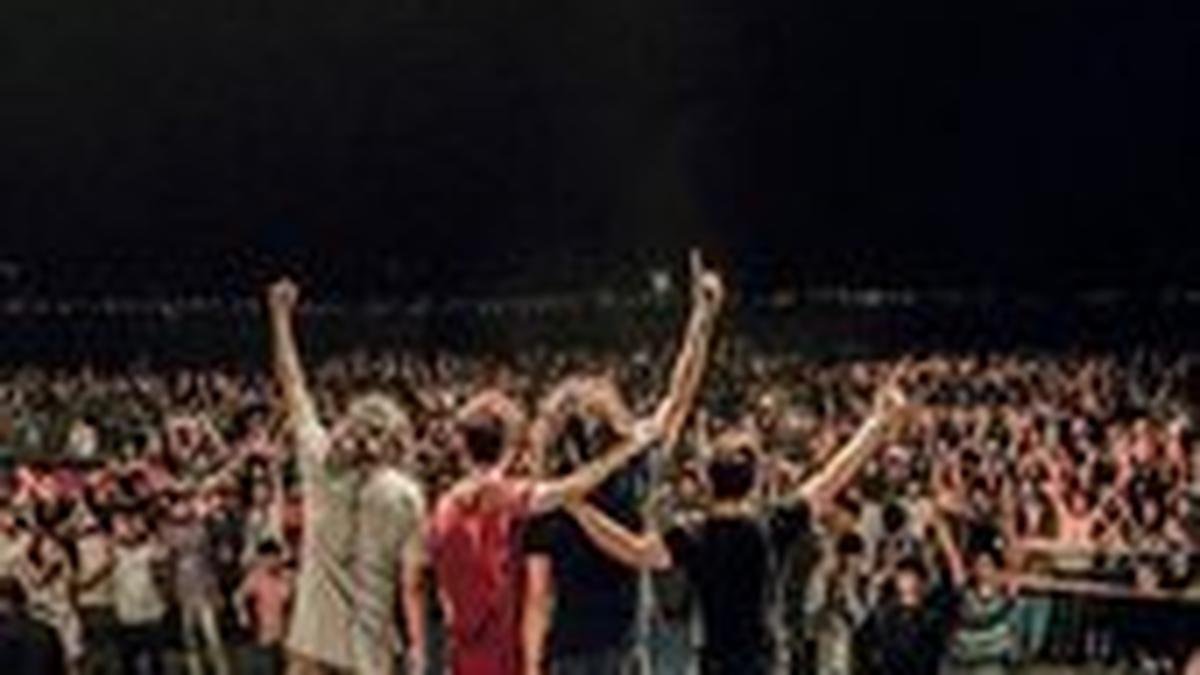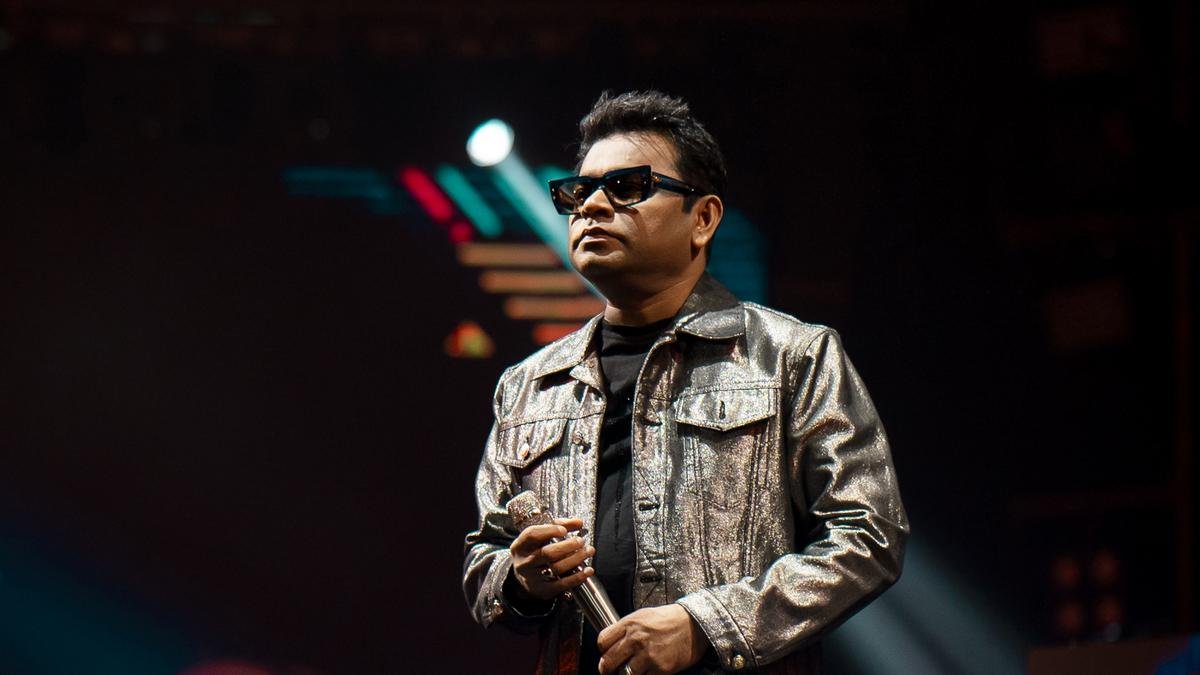New Delhi-based electronica producer and DJ A Little Bit of Everything’s (popularly called Alboe) music has grown exponentially since his debut in 2021. His new nine-track album ‘Enroute 24’ features Indian instruments such as the tabla, harmonium and santoor, which match the tunes of house music, breakbeats and blues. It switches from Hindi to English and back as the mood dictates.
Releasing an album was a big risk for Alboe. “I do not think there is enough time and attention for an album if you are not a famous artiste. It is far easier to continuously promote singles than an album,” he says.
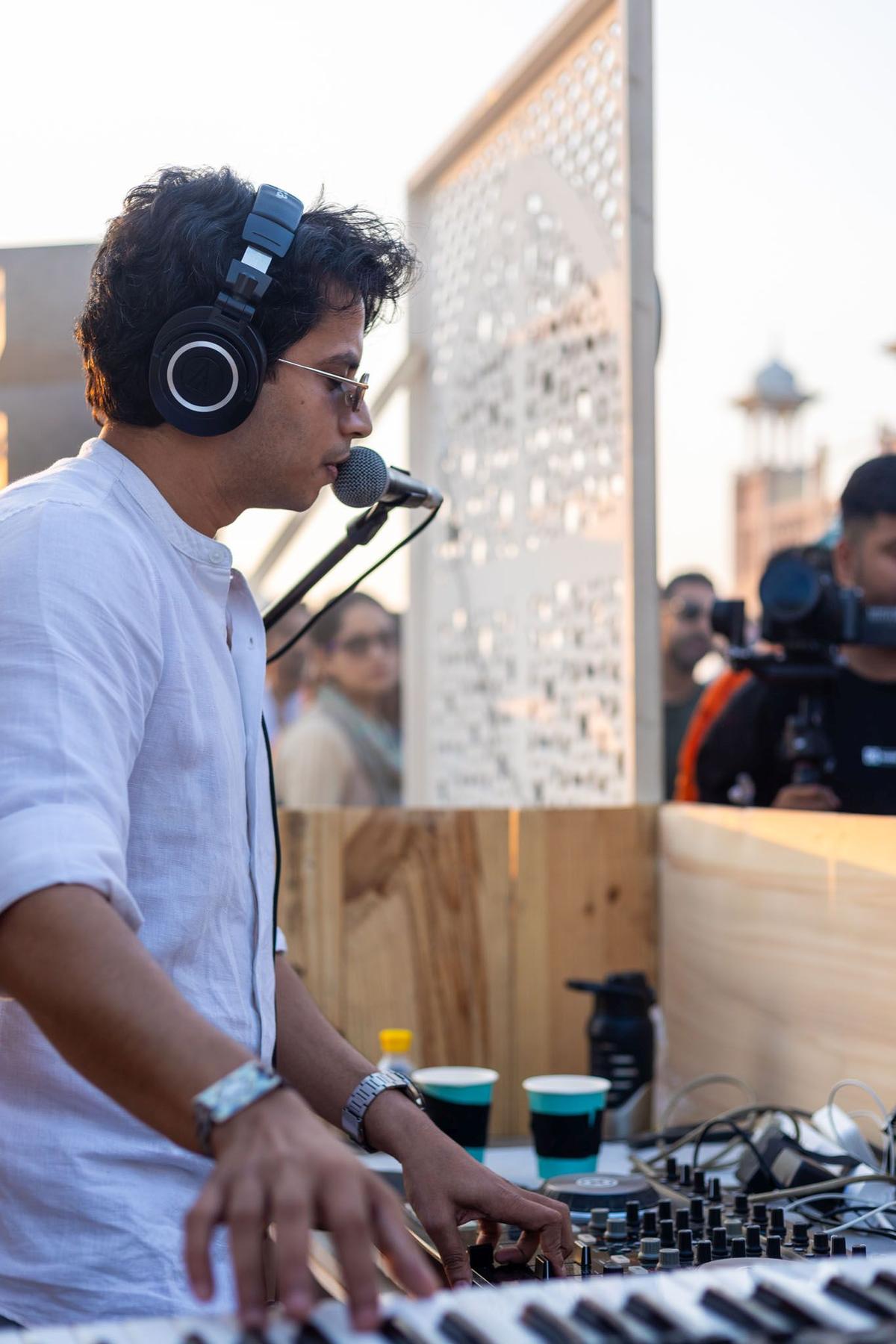
DJ Alboe’s new nine-track album ‘Enroute 24’ features Indian instruments that matches the tunes of breakbeats and blues.
| Photo Credit:
Rishabh Chadha
Though Alboe has got to play at many big festivals such as Magnetic Fields, ZIRO Festival of Music, Gaia Festival, Cymbal and Pravaas Experience, he does not think it has become easier for live electronic artistes to get performance opportunities. The less said about an album opportunity, the better. “Many promoters of clubs and venues choose to programme commercial or techno DJs who have a proven track record. This restricts the exposure to new homegrown sounds and culture,” adds Alboe.
Experimental music
Fusing genres is intrinsic to 19-year-old I-pop and RnB composer and performer Raman Sharma’s sound. From pop to indie and Bollywood to EDM, Raman’s music is experimental, transcending genres and ages. Raman started extensively making music during the Covid lockdown. With an average viewership of close to one million and a loyal fanbase of 1,55,000 followers on Instagram, he is a growing sensation in the Indian pop landscape. Known for his tracks such as ‘Jadui Pari’ and ‘Too Dazed’, Raman’s latest track is the heartfelt ‘Dekho na’.
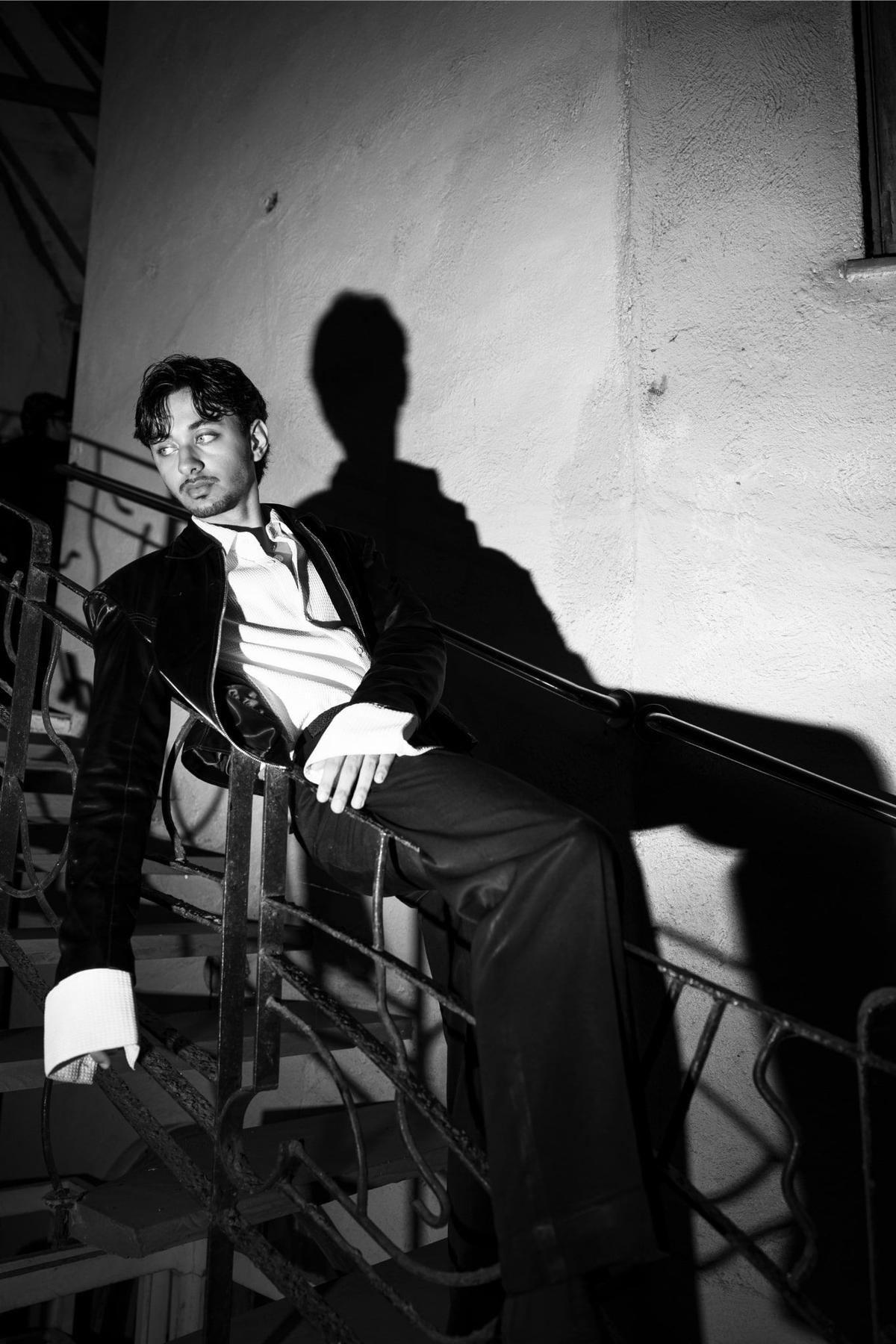
I-Pop and RnB artiste Raman Sharma’s music is all about fusing different genres to create something fresh.
| Photo Credit:
Special Arrangement
While growing up in India connected him deeply to classic Indian sounds, living in California exposed him to hip-hop, pop and cinematic soundscapes. “I love how music today doesn’t have to fit into one box. I’m all about mixing and blending different genres to create something fresh,” he says. Currently studying in California, he makes frequent trips to India. “It’s tough to lock down consistent performance opportunities. Festivals are happening all the time, but being split between two places makes it hard to really seize those chances,” he shares.
Raman is one of the few indie artistes who seems to have had an easier time recording and releasing. “I’ve got my own studio space in my apartment, so I’m constantly cooking up new music. The recording process is where I feel most at home, where I can dive deep into my ideas without worrying about logistics. So while live performances might be tough to nail down right now, recording albums and singles has been easier for me. I’m fortunate that I have this space to create freely whenever inspiration strikes.”
A dynamic fusion
Bengaluru-based indie alt-rock band The Sandcats hit the ground running with their debut release, ‘Lounge Lizards’, in August this year. The Sandcats blends 2000s garage rock, post-punk and modern pop to create music that is a dynamic fusion of high-energy riffs and emotive lyrics, and has been featured on all major English radio stations across India.
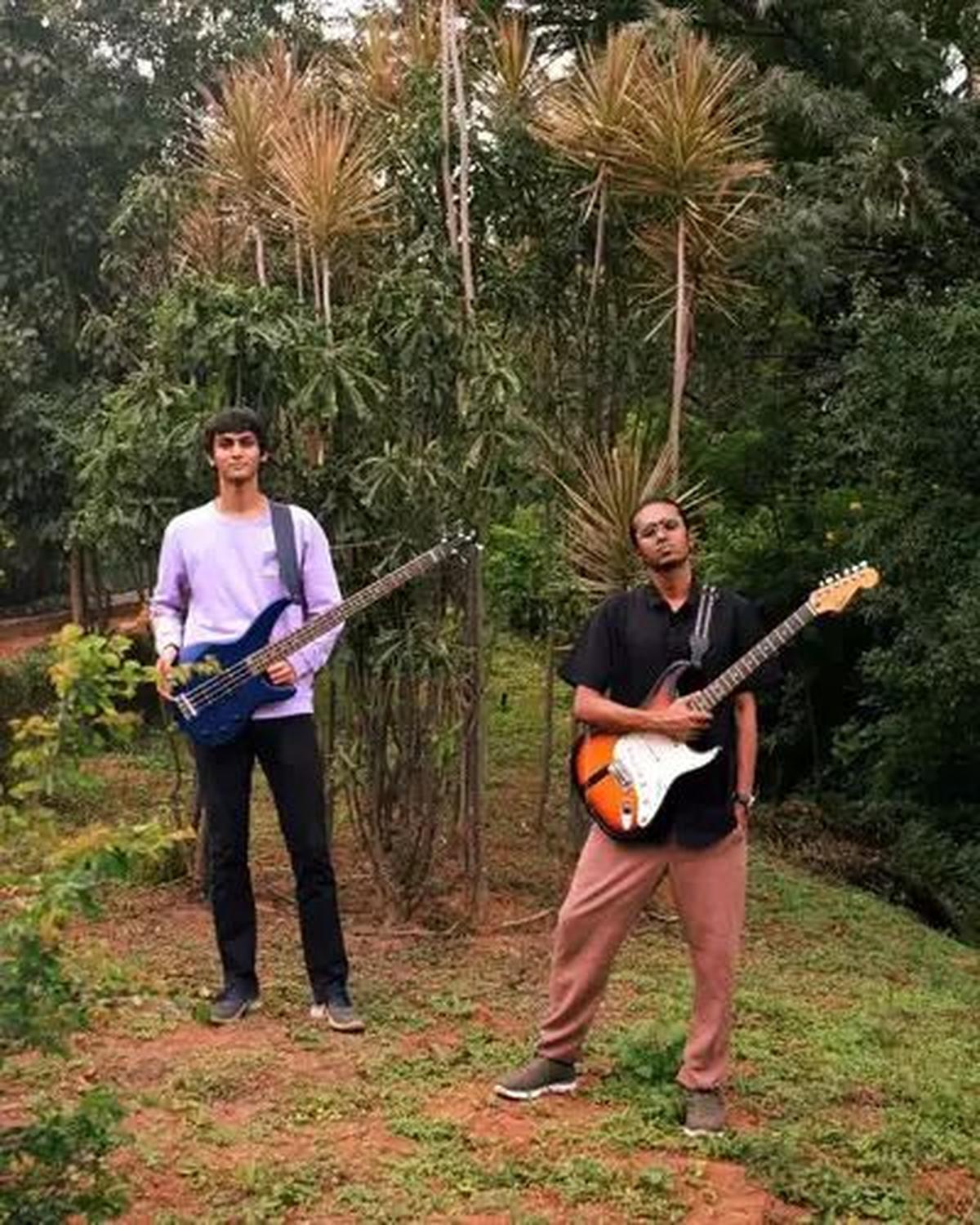
The Sandcats
| Photo Credit:
Special Arrangement
The band’s newest single is ‘Urban Control’, which dives into the struggles of navigating a world shaped by capitalism. The band does not believe in defining itself with one genre of music. “It’s more like not putting a boundary surrounding our sound and having the freedom to experiment uncompromisingly,” says Ritwik Bhaumik, the band’s composer, guitarist, singer, songwriter and producer. With limited budgets, however, recording albums has been a bit of a challenge. “If you can make your demo sound as close to the final version, then you’re able to get the final touches done on the song and get it ready for release with a limited budget. But if you just have an idea and are not proficient with playing multiple instruments and knowing the basics of producing music, it can be a costly affairs,” adds Brahmos Ryan Sharma, the band’s guitarist/bassist.
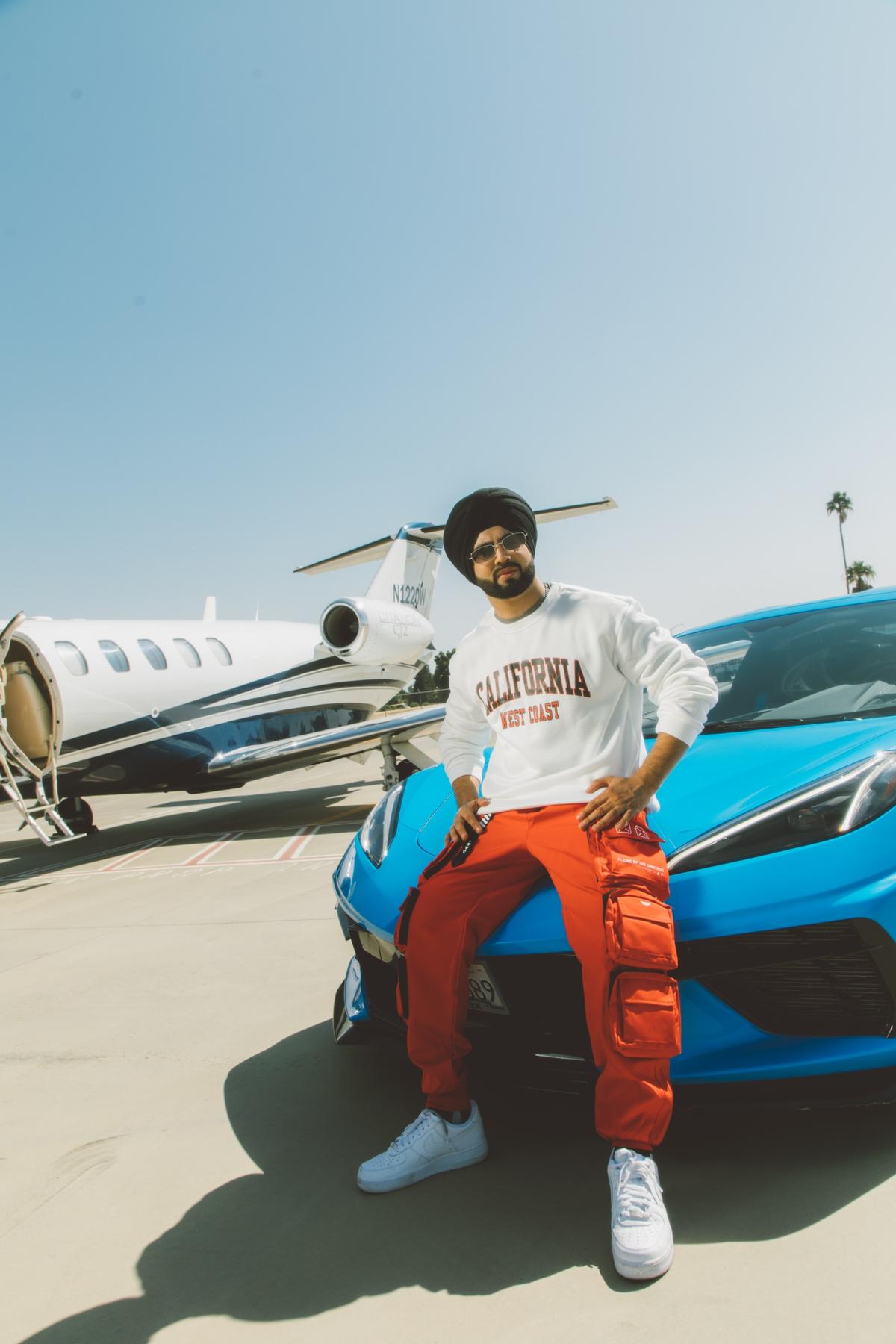
The California-based hip-hop artiste D Cali’s music is urban-based, and the lyrics are in Punjabi-laced English.
| Photo Credit:
Special Arrangement
California-based urban Punjabi hip hop artist D Cali’s discography includes a string of Punjabi hits, such as ’Desifornia’, ‘What to Do’, ‘Radio Girl’, ‘Chorni’, ‘Teriyan Gallan’ and ‘Personal Jet’. His glamorous music videos are known for their high production values and have millions of views on YouTube.
D Cali recently released his third single, ‘I Love You’, from his upcoming debut album Urban Domination. D Cali believes that most people have exposure to western music but like to live with a desi vibe. “My music is urban-based, with the influence of hip-hop beats, and my lyrics are in Punjabi-laced English. Fusion music allows an artiste to connect with twice the number of people, as there are two different vibes to a single song,” he says.
The social media boom
Social media has helped The Sandcats reach fans across the world. But for it, the team would not have met a brilliant artiste like Aadya Naik, with whom the band is collaborating for the artwork and lyric video for ‘Urban Control’. “It’s amazing to see how different people across the world resonate with a track, but in their own way. We’ve found so many like-minded people who get our vision and are willing to support us,” says Bhaumik.
According to Alboe, social media helps build one’s brand. “There are many artistes who have become famous thanks to social media. You can use it to promote shows, message your audience and show them BTS, build interpersonal relationships and more. However, it has also become increasingly important for musicians to get skilled at their social media presence. This can be both a blessing and a bane,” he says.
Raman too owes a lot of his reach and success to social media. “I’ve built a community of people who really mess with my music. I’ve had people from all over the world vibe to my tracks, which wouldn’t have been possible without platforms such as Instagram and TikTok,” he explains. However, Raman also feels that social media isn’t always kind to artistes who are introverts and like to focus on their craft without the constant pressure of posting. “Most artistes create music or art as a very private thing or to connect with themselves, and the social media landscape doesn’t always reward that. The algorithm demands consistency, and if you’re not someone who thrives off that kind of engagement, it can be tough,” he elaborates.
Digital distribution
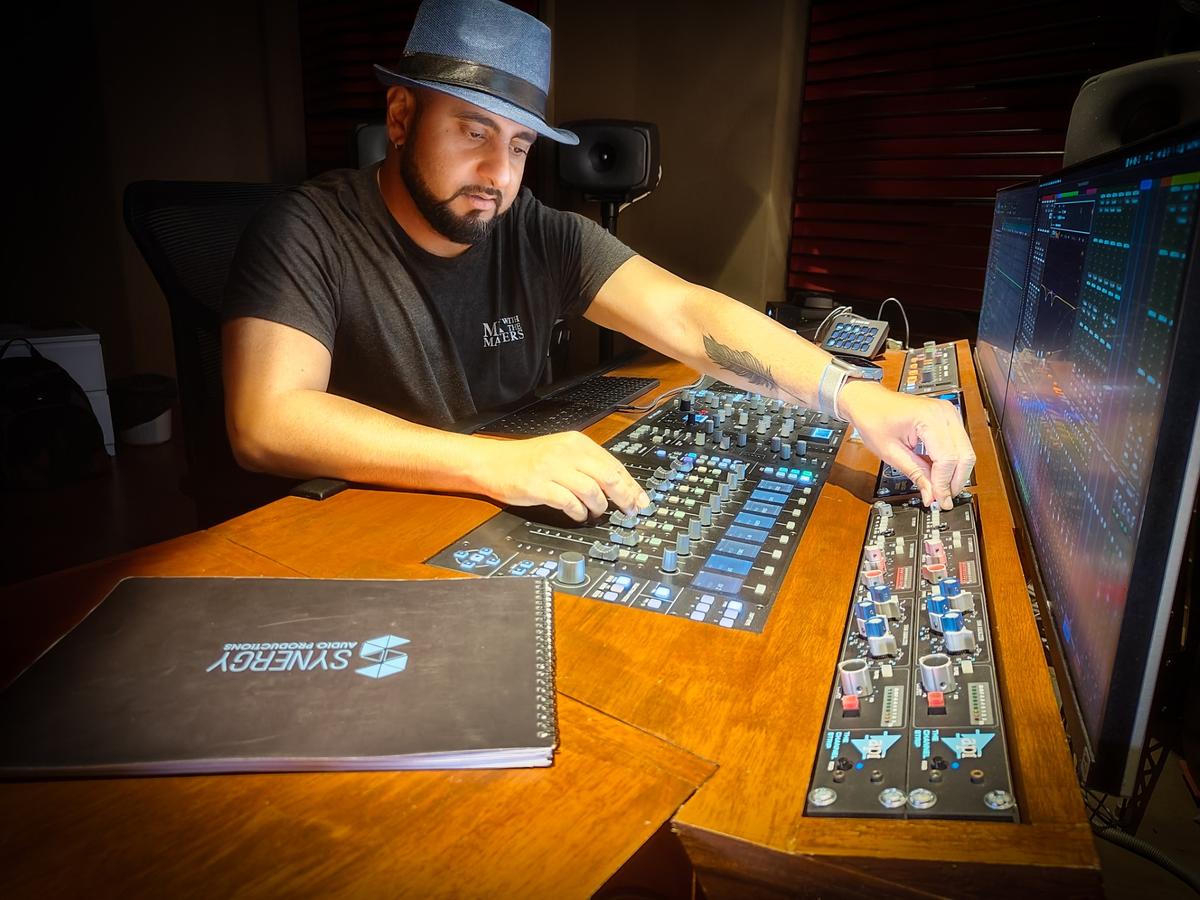
Rohan Solomon says technological advancement and digital distribution platforms have made the recording process a lot easier and more accessible.
| Photo Credit:
Arya Jha
All this was a lot more difficult in the past, when artistes had to deal with middlemen and the feedback was not immediate and real time like it is now. Global chart-topping singer-songwriter/producer Rohan Solomon feels that advancements in technology and digital distribution platforms have made the recording process a lot easier and more accessible. Social media has personally helped in gathering feedback and eliminating the middleman. “But we always come across DIY musicians/producers who produce their records at home, and don’t quite live up to the potential of what they could have sounded like,” says Rohan Solomon, who has studied music production and audio engineering and worked at a studio in New York City. According to him, indie artistes do need the push of marketing and promotion to really get their music out there and heard.
Published – November 12, 2024 03:56 pm IST
Indie music
DJ Alboe
The Sandcats
I-pop and RnB music
Raman Sharma
Lounge Lizards
Ritwik Bhaumik
D Cali
Source link
